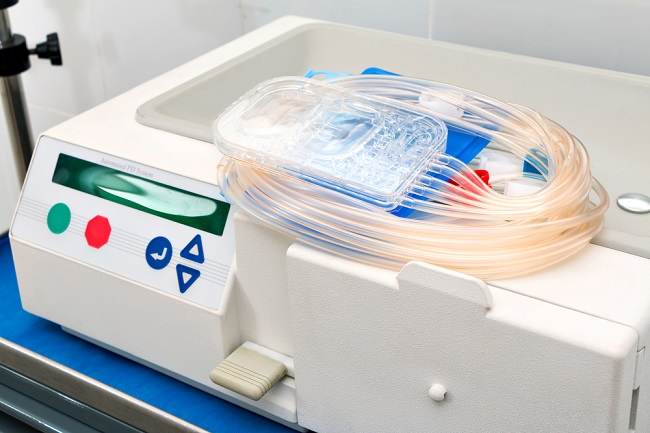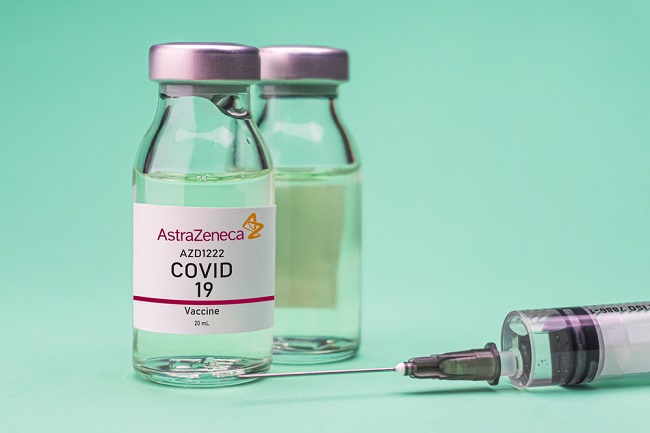Despite having a lot of busyness, some active women still do not leave sports, in order to maintain a healthy body. Doing all activities profession plus exercise, e.g. yoga or aerobic exercise, make body woman sweating easily. Despite sweating, not a few women tend to ignore their own hygiene. In fact, the body and feminine area that is damp due to sweat can cause skin irritation.
Sweating is the body's natural way of cooling down, by releasing water and salt. But if excessive, sweat can bother you. Normally, sweat comes out of the skin pores and evaporates. When sweat gets trapped under the surface of the skin and clogs sweat glands, it can cause the skin to become irritated and itchy.

Itching or skin irritation can occur in any part of the body, not least in the area of your intimate organs. If you keep scratching this area, it will cause the skin to become blistered, bleed, and susceptible to infection.
Causes of Skin Irritation of Female Intimate Organs
In addition to sweat, there are several other causes that can irritate the skin of your intimate organs, namely:
- Exposure to irritantsAn irritant is a substance or thing that causes irritation, and can cause an itchy skin rash. Irritants that often cause irritation around the female sex organs, including soaps, creams, ointments, fabric softeners, vaginaldouching (vaginal cleaning technique), and detergent.
- Certain diseasesSeveral diseases can make the skin in the vaginal area itchy and irritated, namely bacterial vaginosis, yeast infections, sexually transmitted diseases (such as chlamydia, genital warts, gonorrhea, genital herpes, and trichomoniasis), and skin diseases (such as eczema and psoriasis).
- MenopauseWhen entering menopause, levels of the hormone estrogen decrease. This causes the skin around your sex organs to become thinner and drier. This condition can make the skin on the female side more prone to irritation and itching.
How to prevent and treat skin irritation in the female sex organs
To prevent and treat itching and skin irritation in the female area, there are several things you can do, including:
- Use underwear made of cotton and not tight. In addition, change underwear every day on a regular basis. Reduce or avoid use panty liners, because it can make your feminine area moist.
- Change underwear, shirts, and pants whenever you sweat, to reduce fungal infections that can be caused by damp skin.
- Wash and clean your genital area gently, at least once a day. Remember, don't rub it too hard. Clean the female area properly, from front to back (from the vagina to the anus) after urinating, right?
- You can use feminine cleansing soap that is made from gentle, natural, and contains hypoallergenic to minimize the occurrence of allergies in your female area.
- Avoid various triggers for skin allergies and irritation of your intimate organs, such as ordinary bath soap with a high pH, perfume, colored toilet paper, and you are advised to use colorless and unscented toilet paper when cleaning your intimate area.
- Change sanitary pads as often as possible when you are menstruating, if necessary use a feminine hygiene product to help clean the feminine area.
- Make sure the feminine area remains dry so as not to invite bacteria and fungi.
Women's cleaning products labeled hypoallergenic soft like aloe vera and collagen, with a pH that matches the acidity of the vagina, can be one of the right choices to clean the female organs properly. It is recommended to choose feminine products that contain aloe vera and collagen to relieve inflammation and restore moisture, good bacteria Lactobacillus to restore and maintain the pH balance of the feminine area. Also make sure to choose products that have been clinically tested or labeled dermatologically tested.
Itching that may be caused by irritation and allergies can cause you discomfort. In addition, irritation that occurs in the female area can cause infection and invite various diseases. If you experience it, immediately consult a doctor to get the right treatment.









